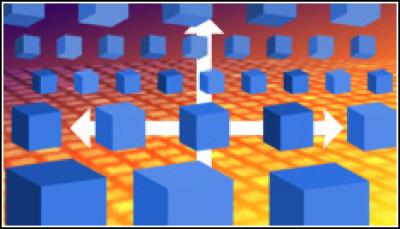3PAR Launches Autonomic Storage Tiering for High-End Arrays

Autonomic tiering prevents problems from happening using intelligence gained by a constant data collection
3PAR, which has established much of its identity around the idea of thin provisioning for data centre storage, has brought to reality another concept: autonomic storage tiering. The company introduced its newest software feature, Adaptive Optimization, which does this tiering, on March 8.
IBM has championed the concept of autonomic computing for about a decade. Autonomic computing is a self-management mechanism for a system or systems that can make pre-programmed “decisions” for themselves to solve problems – then solve them very quickly – in order to keep the data centre operational.
At its optimum, the process actually prevents problems from happening in the first place through a combination of business and operational intelligence, gained by a constant collection of data.
3PAR Adaptive Optimization follows this concept to enable high-end-type storage systems to achieve an efficient distribution of data over the application lifecycle – without needing intervention by an administrator.
The software intelligently monitors sub-volume level performance, then applies user-created policies that autonomically and non-disruptively re-balance a workload across tiers to continually and flexibly meet changing application demands, 3PAR vice-president of marketing Craig Nunes told eWEEK.
“At the same time, Adaptive Optimization minimises the risk of user-level impact through non-disruptive sub-volume data movement technology, which has been proven over years of use, coupled with administrator controls that incorporate additional policy override mechanisms,” Nunes said.
Nunes also said 3PAR has added support for solid-state drives in its InServ storage arrays.
3PAR’s software now will support units of eight 50GB STEC Mach8IOPS single-level cell SSDs in its T Series high-end disk arrays and F-Class midrange disk arrays beginning in Q2, Nunes said.
Several storage vendors with support for SSDs now use 100GB ZeusIOPS SSDs from STEC. Nunes said 3PAR decided to go with the smaller-capacity drives because 3PAR’s systems stripe data chunks across all drives in the array – and 50GB drives are easier to replace and less-expensive. Pricing for each set of eight SSDs will start at $22,400 (£15,000), he said.
3PAR’s autonomic approach to service level optimisation was designed to reduce enterprise and cloud data centre costs by delivering more efficient service to the right data at the right time – non-disruptively and on an ongoing basis, Nunes said.
For more information, go here.